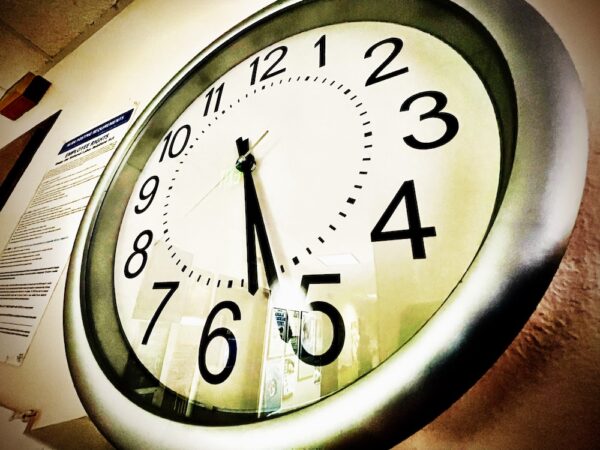
Many Alaskans will be thrilled to learn we’re this close close to abolishing the drudgery of semiannual clock-changing.
The U.S. Senate last week passed a bill that would end the ritual of springing forward and falling back.
A bill to make daylight saving time permanent passed by unanimous consent — meaning without an actual roll-call vote.
To hear U.S. Sen. Ed Markey, D-Mass., tell it, staying on daylight saving time year-round will make children smarter, neighbors nicer and cats more cuddly. He says it’ll even make Congress function right.
Liberals and conservatives are “coming together to show that this institution can work,” he said in an aspirational speech on the Senate floor. “And why is that? Well, it’s because we know that daylight savings time helps to turn the corners of people’s mouths upwards into a smile. It’s sunshine, and smiles.”
Markey and other evangelists of permanent daylight saving time describe it as allowing more Little League games and garden-tending because it “gives” people an extra hour of sunlight.
It doesn’t do that, of course. Daylight saving time can only provide an hour of evening light by borrowing it from the morning. And permanent daylight saving time would bring some unintended winter consequences in Alaska.
“Nome would have a sunrise after 1pm,” observed Brian Brettschneider, a climatologist in Anchorage. He’s spent a lot of time thinking about sun angles and life in the North. Daybreak would be especially tardy on the western edges of time zones, he points out. But Brettschneider said Alaskans already know all about late winter sunrise.
“They’re accustomed to it just being dark,” he said. “In the morning, when they get up. When they go to school. When they go to work. It’s just going to be dark, no matter what. And I think there’s a lot of people that are maybe looking at getting a little bit of daylight in the afternoon in compensation for that.”
In Alaska, he said, permanent daylight saving time doesn’t bring as much benefit, or exact as high a cost.
In spring time, as we gallop toward summer solstice, we don’t need to advance the clock to get more light in the evening. Just wait a few day and the globe does that for us.
And the penalty of less morning light? As we slump toward Christmas, we will lose daylight regardless. Nothing the government does with the clock can make it otherwise. The kind of daylight saving that would help Alaska is borrowing an hour from June and giving it to January.
“You know, the real solution is to change the axial tilt of the earth, and then that solves everyone’s problem,” Brettschneider said.
But Congress can’t do that.
The more significant impact in Alaska of making daylight saving time permanent would be to spare everyone the ritual of resetting the clocks twice a year.
Amanda Moser hates that ritual. She’s the executive director of the Anchorage Downtown Partnership, but years ago she worked as a waitress. She said she saw the ugly side of fall-back Sunday at drinking establishments.
“It is very good that bars close. People do need to go home and stop drinking,” she said. “But on that day, you get an extra hour at the bar. It’s dangerous.”
Moser cites research suggesting that clock-shifting is associated with more heart attacks, strokes and other ills. She’d like to be done with it.
The bill that passed the Senate would have us spring forward one last time, next year, and then hold.
Sen. Lisa Murkowski is all for it.
Sen. Dan Sullivan’s office did not respond to an emailed inquiry.
Whether the Senate-passed bill will become law isn’t clear. House Speaker Nancy Pelosi told the publication “The Hill” that she likes the idea, but she didn’t commit to bringing the bill up for a vote in the House.
[Sign up for Alaska Public Media’s daily newsletter to get our top stories delivered to your inbox.]
Liz Ruskin is the Washington, D.C., correspondent at Alaska Public Media. Reach her at lruskin@alaskapublic.org. Read more about Liz here.





